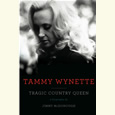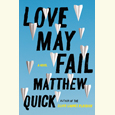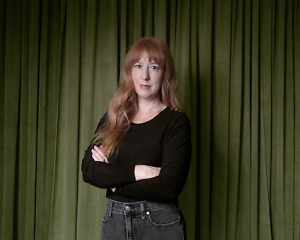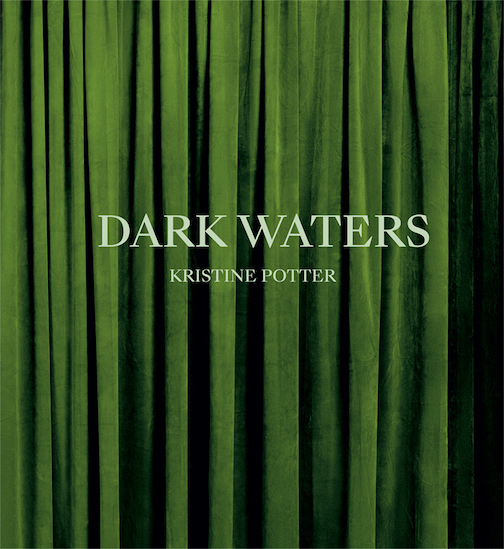Dooced No More
Proto-blogger Heather Armstrong writes a bestselling book
Memphis native Heather Armstrong didn’t invent the personal weblog any more than Al Gore invented the Internet, but she is definitely one reason the word blog has entered the English language. In fact, the very name of her own blog, Dooce, is cited in the Urban Dictionary as an intransitive verb: to be dooced is to lose your job because of something you wrote on your blog.
In 2002, Armstrong lost her own job because of something she wrote on her blog, which she had launched the year before as a place to write about “pop culture, music, and my life as a single woman” in Los Angeles. Expecting “no more than a couple of dozen people to read it,” she wasn’t aware that this select group included her boss, who was not amused.
Others who found Dooce had a better sense of humor, and Armstrong’s loyal readership has grown over the years, reading and commenting in real time as Armstrong ditched her boyfriend, adopted a dog, got married, moved to Utah, had a baby, suffered a debilitating case of postpartum depression, got well, adopted another dog, and had another baby. Today Dooce receives more than six million page views a month. The blog that got Heather Armstrong fired now supports Armstrong, her husband Jon (who manages the technical side of the complicated site), and a small staff. No wonder that last summer Forbes magazine named her one of the thirty most influential women in media.
 In addition to blogging at Dooce, Armstrong also blogs for Knoxville-based HGTV. Her first book, It Sucked and Then I Cried: How I Had a Baby, a Breakdown, and a Much Needed Margarita, became an instant bestseller when it was released in hardcover last year. As the paperback version hit shelves, Armstrong took a few minutes to talk by phone with Chapter 16.
In addition to blogging at Dooce, Armstrong also blogs for Knoxville-based HGTV. Her first book, It Sucked and Then I Cried: How I Had a Baby, a Breakdown, and a Much Needed Margarita, became an instant bestseller when it was released in hardcover last year. As the paperback version hit shelves, Armstrong took a few minutes to talk by phone with Chapter 16.
Chapter 16: You’re in a unique position to comment on the anxiety so many passionate readers—not to mention publishers—are feeling now about the future of books in a digital age. You write what is arguably the most popular personal blog on the planet, you have millions and millions of readers, and yet you chose to write a book. Why?
Armstrong: I really wrote it for my mom, so she could tell people her daughter wrote a book. If you’re a writer and you’ve got a book, people take you seriously.
Chapter 16: Was it difficult to make the transition from blog to book?
Armstrong: It was excruciating. I remember being under that deadline, feeling like I was supporting the whole house on my shoulders, and thinking, “I’ll never be able to breathe again.”
Chapter 16: There’s something about a blog that’s very raw and immediate, but it’s also polished writing. What people read on Dooce clearly isn’t your first draft.
Armstrong: I take it very seriously because it supports my family. I really enjoy the immediacy of it—I can publish five paragraphs that I’ve crafted, and I can get immediate feedback on them. In a way, I’m basically writing a book as the year goes on—I’m writing a page of the book every day.
Chapter 16: So why was writing the book itself so painful?
Armstrong: I think because I didn’t get any feedback on it for seven months. Every night after we put our daughter to bed, I’d sit down with it, and trying to connect everything was like pulling teeth out of my head. It was a nightmare. I was used to the muscle I use when I blog, which is five paragraphs, but the book needed to be cohesive, all 200 pages of it.
Chapter 16: Some of the feedback you get at the blog surely isn’t helpful; you do have trolls.
Armstrong: Yes, and there are times when I’ve said something because I purposefully wanted to send them into an absolute tizzy. There’s sort of an evil pleasure in that. Those people have been hosting hate fights for years and years and years, and it’s fun to watch them spin. But that [attitude] came after a long, long time of being harassed; it was a way to let off some steam.
Chapter 16: One of the hazards of fame is that strangers think they have a right to an opinion about you.
Armstrong: It’s not just the strangers. People that I’ve met in real life will go back to their websites and say—and make up—things that are so horrifying that at first it really made me stop and take a look at my life and think, “Do I really want to be doing this?” All of a sudden I was aware of at least a thousand people who really hate me and want me to hurt.
Chapter 16: Because they’re jealous of you?
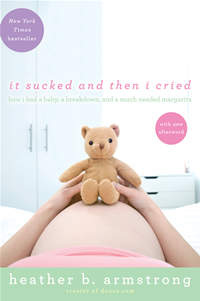 Armstrong: That, and because they really disagree with me. They think I shouldn’t be successful because they disagree with me. And that’s a weird reality to live with. Usually people go about their daily lives knowing that one or two people from their high school don’t like them, or their mother-in-law doesn’t like them, but I can go right now and read hundreds, if not thousands, of pages of total hatred written about me and my family.
Armstrong: That, and because they really disagree with me. They think I shouldn’t be successful because they disagree with me. And that’s a weird reality to live with. Usually people go about their daily lives knowing that one or two people from their high school don’t like them, or their mother-in-law doesn’t like them, but I can go right now and read hundreds, if not thousands, of pages of total hatred written about me and my family.
Chapter 16: Was it all liberating not to have those people reading over your shoulder while you were working on the book? Postpartum depression is truly a heartrending subject that must have been difficult for you to revisit.
Armstrong: It was difficult to revisit, but the good that came from writing that story, the feedback I’ve gotten from telling that story, far, far exceeds any of the bullshit I’ve had to endure because of this job. Hearing people say, “Thank you for writing this because I felt a little bit better after I read it” is a real affirmation. When I got to go on book tour and see the faces of the people who were changed by it—that was a once-in-a-lifetime opportunity, and I’m so grateful that I got to do it.
Chapter 16: Was the book tour emotionally more difficult because you were pregnant? Did you worry at all that you might experience postpartum depression again?
Armstrong: There was a component of that, but I was still taking medication the second time, so I was a little more even-keeled. Also, I just felt like I’d come so far, and doing that book tour while I was pregnant just felt so right.
Chapter 16: I know a midwife who says your blog posts about delivering your second child have done more for natural childbirth than anything since Lamaze.
Armstrong: Having a natural childbirth completely changed my life just as much as checking myself into the hospital for postpartum depression did, and I thought it was just as important to share. And if it makes anyone consider her options as a pregnant person, then I’ve done my job.
Chapter 16: Do you remember what you wanted to be when you grew up?
Armstrong: I wanted to be a teacher. A high-school English teacher.
Chapter 16: So when you majored in English in college, you weren’t planning to be a writer of some kind, if not a blogger exactly?
Armstrong: I hated high school, actually, so by the time I got to college, I really didn’t know what I wanted to do. And even after I got to college, I had no idea what I wanted to do.
Chapter 16: So you basically invented a profession for yourself.
Armstrong: I did!
Chapter 16: You’re not a practicing Mormon now, but what was it like to grow up Mormon in Memphis?
Armstrong: It was very difficult. I grew up not a stone’s throw from a giant, giant Baptist church, and they routinely held classes that taught people that Mormons are evil. So a lot of my peers thought I was the spawn of Satan. The Mormon community was very small, so I had a very small group of friends at church. And not only was I Mormon, but I was also awkwardly skinny and a total perfectionist, and I had a constant frown on my face. I took things way, way, way too seriously. I was not well liked. [For college] I thought I’d come out to BYU and be among my people, but then when I got here I was like, “Oh, my God, these are not my people!” There were many years of trying to figure out who the hell I was, but only part of that came from growing up Mormon in Tennessee.
Chapter 16: Do you ever come back?
Armstrong: The last time I was in Memphis was for my ten-year high-school reunion in 2003.
Chapter 16: Do you think of yourself as a Southern writer at all?
Armstrong: Absolutely. I come from a very Southern family, and we all sit around for hours and talk. When we have a meal together, we don’t go turn on the television afterwards; we just sort of move into the living room and continue talking and telling wild stories and making each other laugh for hours and hours. A lot of it revolves around food, but it’s all about the storytelling with us. Southerners are friendly; they’ll talk to anybody. I definitely think that’s at the heart of what I do. And I miss the South so much sometimes. I was in Knoxville last November for [meetings with] HGTV, and it rained for three days, and every single person that I ran into apologized for the fact that it was raining. And I thought, “Oh, I miss this so much!”
Chapter 16: Do you think you’ll ever write something that isn’t a memoir? Are you at all drawn to fiction, or to reporting? Would you ever write, say, a book about natural childbirth?
Armstrong: Maybe. I don’t think I could ever write fiction. When we put our daughter to bed, she wants us to tell her stories, and I’m horrible at it! I cannot make up a story to save my life. But nonfiction, maybe.
Chapter 16: Do you have a plan for how the blog might change when Leta is old enough to object to what you post about her?
Armstrong: I plan to stay on top of it. I already ask her if I can take her picture and post it, and I read to her the things that I write about her. So far she just thinks it’s boring, but I’m constantly communicating to her about it, so when the day does come when she says, “Oh, you’re writing about me,” we’re prepared for it.
Chapter 16: In the nanosecond of time that you have to yourself, what kinds of books do you like to read?
Armstrong: Right now I’m reading The Conscience of a Liberal by Paul Krugman. Great book.

